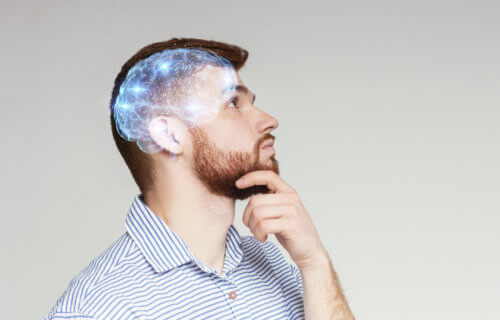BOSTON — Is your conscious mind really in charge of your decisions? A team in Boston has created a new theory of consciousness which tries to explain how it developed and what role it serves. Interestingly, researchers suggest that it’s actually a person’s unconscious brain that does all the work, with the conscious brain simply reacting to it.
Boston University Chobanian & Avedisian School of Medicine researcher Andrew Budson explains that consciousness is a person’s awareness of themselves and the world around them. This awareness is unique for everyone. However, Budson questions whether people are actively perceiving the world, or just remembering what their unconscious brain tells them.
“In a nutshell, our theory is that consciousness developed as a memory system that is used by our unconscious brain to help us flexibly and creatively imagine the future and plan accordingly,” the corresponding author and professor of neurology says in a university release. “What is completely new about this theory is that it suggests we don’t perceive the world, make decisions, or perform actions directly. Instead, we do all these things unconsciously and then—about half a second later—consciously remember doing them.”
Budson and co-authors Kenneth Richman and Elizabeth Kensinger came up with this new theory after discovering a number of phenomena that established theories about consciousness could not explain.
“We knew that conscious processes were simply too slow to be actively involved in music, sports, and other activities where split-second reflexes are required. But if consciousness is not involved in such processes, then a better explanation of what consciousness does was needed,” says Budson, who is also the Director of the Center for Translational Cognitive Neuroscience at the Veterans Affairs (VA) Boston Healthcare System.
How does this impact human behavior?
The study authors say this theory suggests that all of our decisions are made unconsciously — but the brain fools us into thinking we consciously decided to take action. When someone says to themselves that they’re only going to have a spoonful of ice cream and then finishes the entire container, researchers say it’s because their conscious mind is not controlling their decisions.
“Even our thoughts are not generally under our conscious control. This lack of control is why we may have difficulty stopping a stream of thoughts running through our head as we’re trying to go to sleep, and also why mindfulness is hard,” Budson explains.
The researchers believe that several neurologic, psychiatric, and developmental disorders may actually reveal problems with consciousness. These include Alzheimer’s, delirium, migraines, schizophrenia, and certain types of autism.
Their work may provide a new roadmap for doctors and scientists looking to help people deal with behavioral issues such as overeating.
The study is published in the journal Cognitive and Behavioral Neurology.


Sadly, this is an extremely flawed study as are other studies attempting to argue for a brain based etiology for consciousness. yes, correlation can be observed between conscious mind states and brain activity, but correlation is not causation. All these silly scientific reductionist efforts are like trying to study a sunrise by facing west and the proponents of this silliness fail to ask the right questions. It is more worrisome the Study Finds would publish this nonsense… I suggest people read some of the arguments against the brain-consciousness hypotheses by such outstanding neuroscientists as Donald Hoffman at Univ Cal and Iain McGilchrist from Oxford.
This view, that our brains make decisions before we are conscious of them is why I think using the word “consciousness” which in this instance means our attention is not the best word to describe the full phenomenon, and “mind” is a better word. “Awareness and attention” is just one phenomenon managed by mind.
An interesting concept. I hope more research is added to our knowledge base.
Maybe the mind is in some sense our bodies Last Frontier
For something so important to our daily lives, how much does the average citizen know?
Not enough I think.